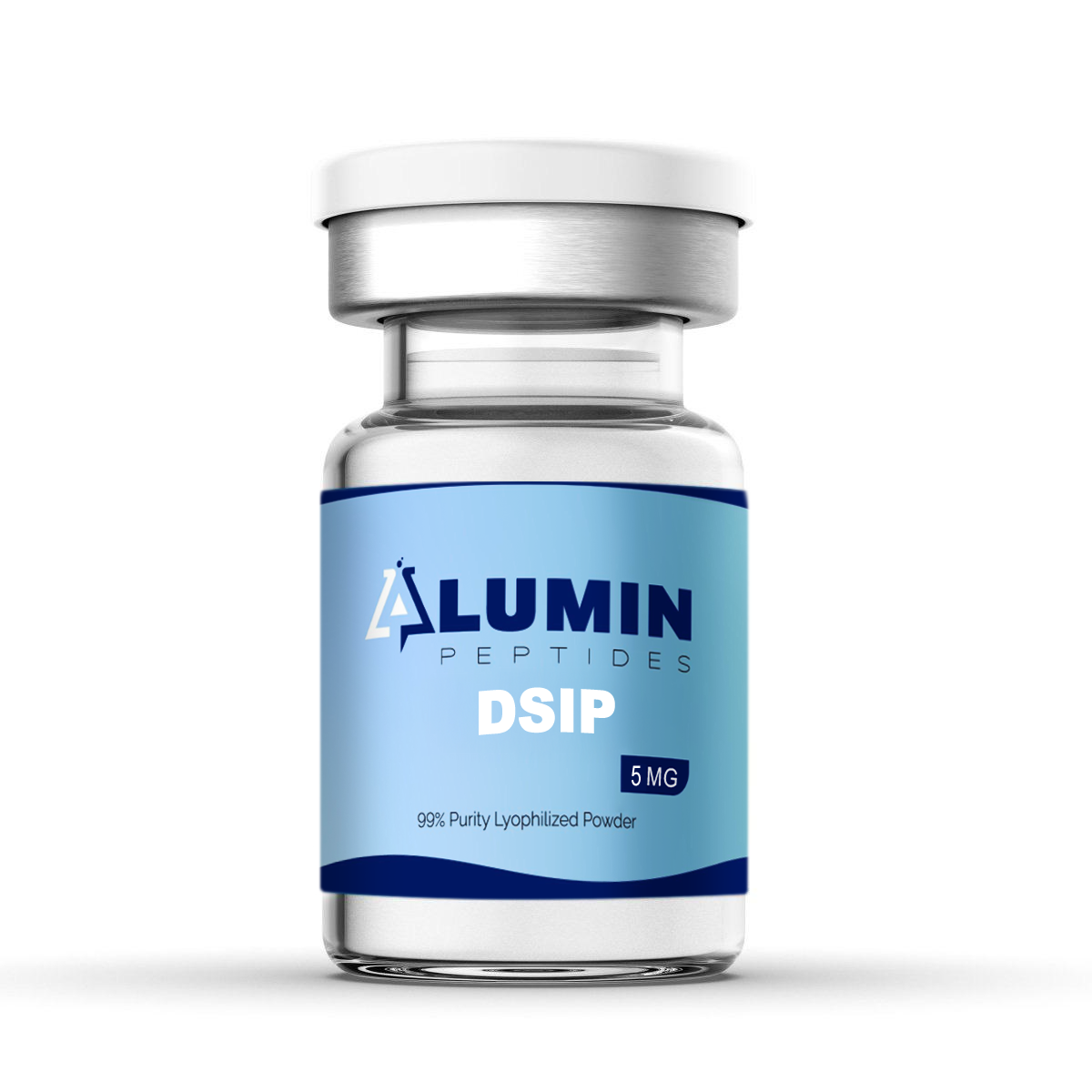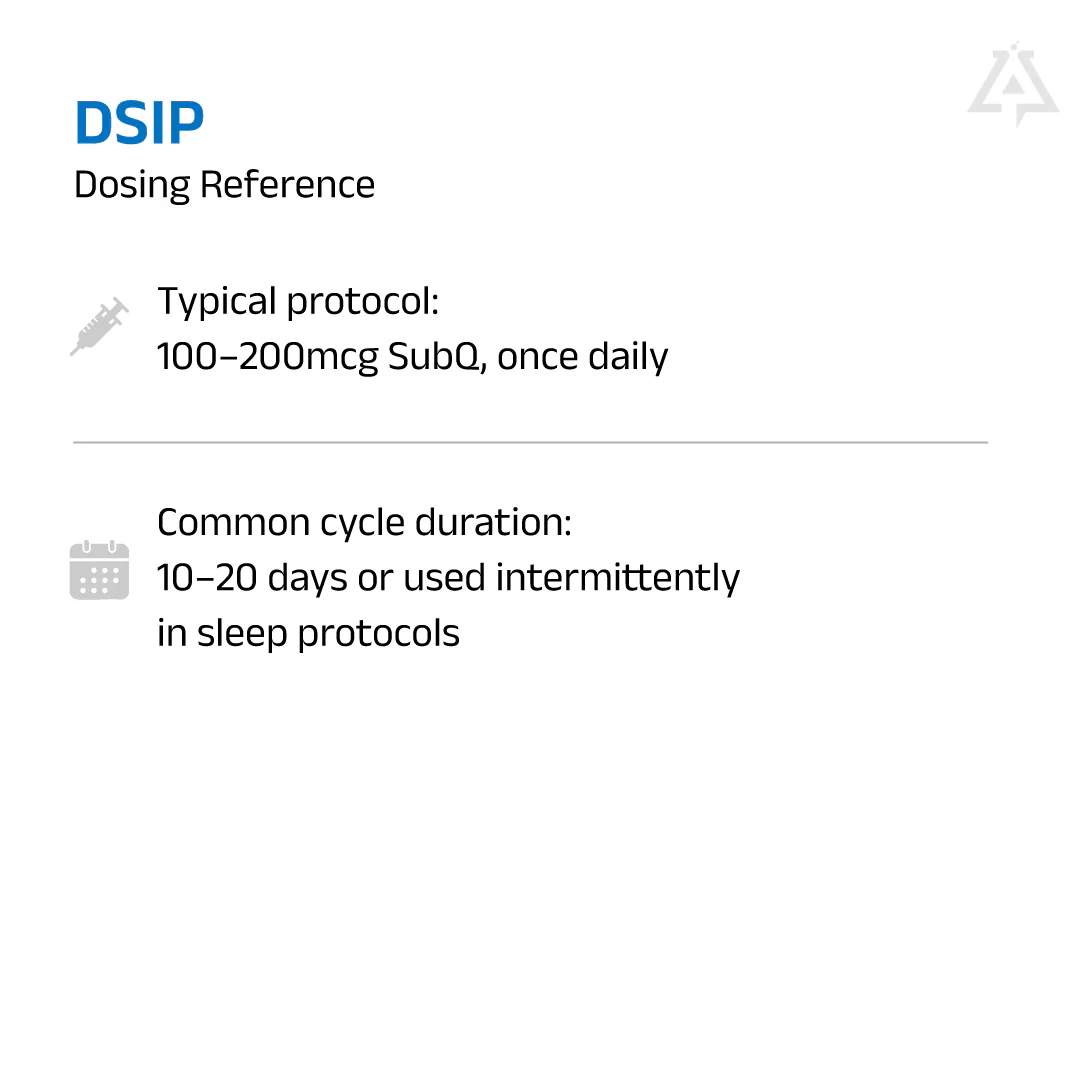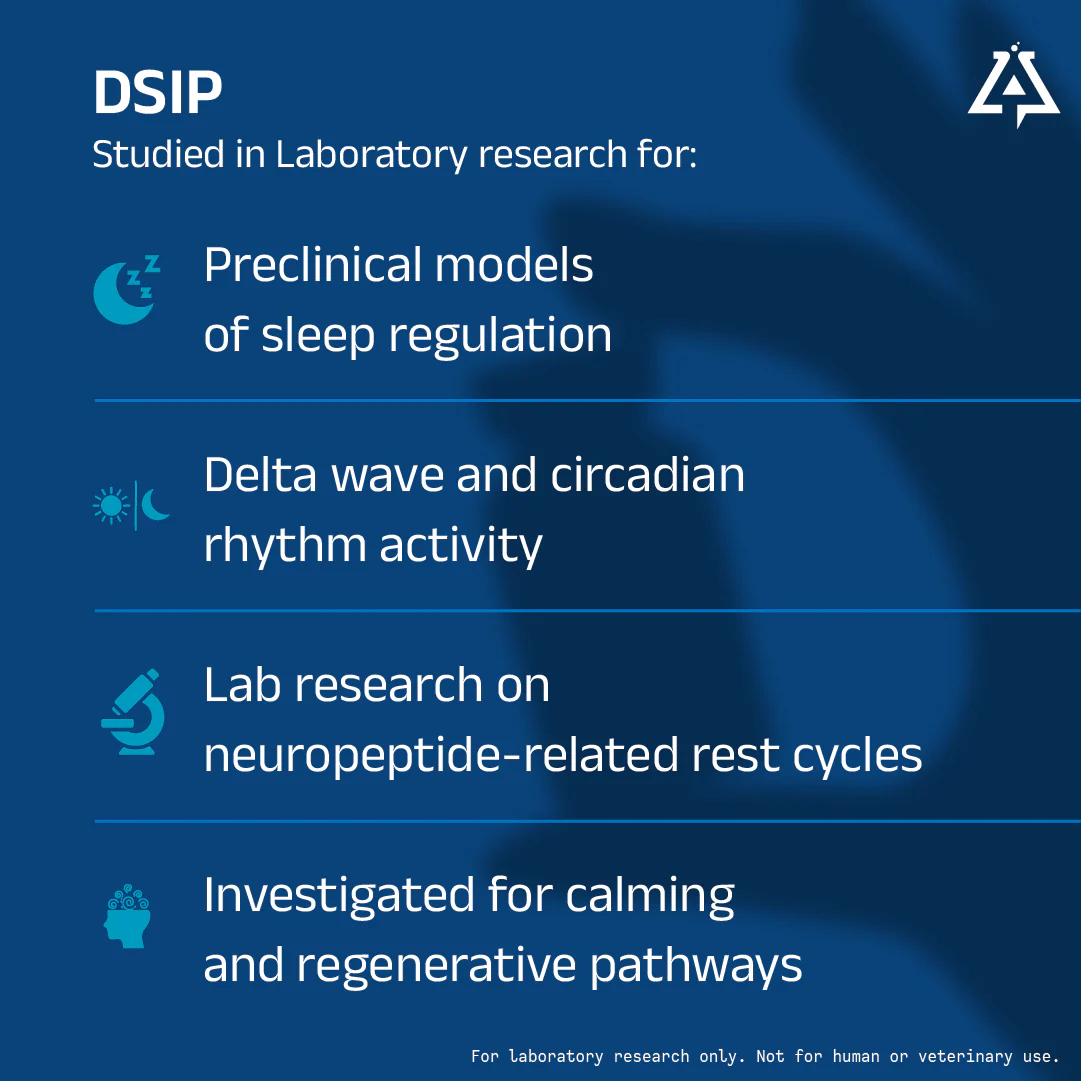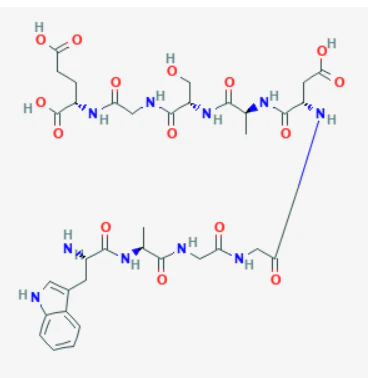Delta sleep-inducing peptide (DSIP) is a short peptide of natural origin. It gains its name from its ability to cause sleep in rabbits and from the fact that it was first isolated in 1977 from the brains of rats during slow-wave sleep. The peptide, however, has a number of physiologic and endocrine roles that are slowly being uncovered as it gains interest among researchers. Right now, it is known that DSIP can alter corticotropin levels, inhibit somatostatin secretion, limit stress, normalize blood pressure, alter sleep patterns, and alter pain perception. It may also have future applications in cancer treatment, depression, and the prevention of free radical damage.
99% Pure Lyophilized Powder in 3ml vial (NOT A LIQUID) – If Reconstitution is desired, please purchase our Reconstitution Solution, HERE







